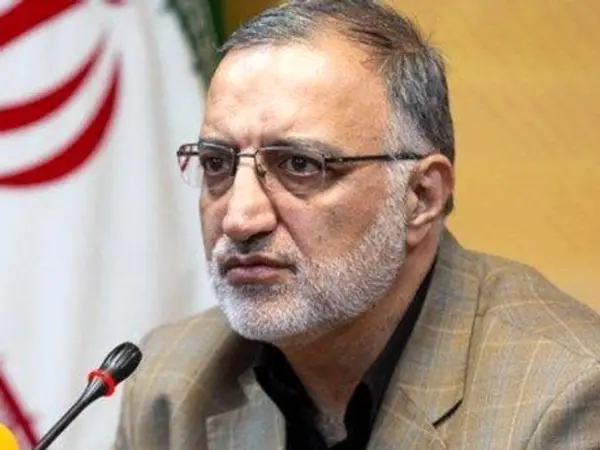Nepotism was a top issue for Iran's official media that unexpectedly did not censor the news about Tehran's mayor appointing his son-in-law as his adviser.
When protest escalated in the press and on the state television and attracted everyone's attention with a mixture of jokes and sarcasm, mayor Alireza Zakani said that his son-in-law, Hossein Haydari is supposed to work for free.
Zakani was a hardline member of parliament before becoming a candidate in the June presidential election and lost. The newly elected city council, also with a majority of hardliners reluctantly appointed him mayor in August.
In a surprising development, the state television aired footage dating back to the June presidential election which showed Zakani promising as that he will not employ his relatives if he is elected President. The video went viral on social media in a matter of minutes.
He was not elected president, but he gave jobs to his relatives and his friends' relatives and even the daughter-in-law of an influential cleric in Shiraz, possibly hoping to use the cleric's influence in case political waters got rough, the media reminded.
Many unemployed social media users as well as those not happy with their jobs regretted that they should have more carefully chosen their fathers-in-law rather than being picky about choosing their wives.
It appears that following recent changes in the management of state television, transparency and exposing nepotism and corruption is on its agenda, at least depending on who the target of criticism might be.
The new approach of reporting on such cases might be an attempt to restore credibility after years of sweeping scandals under the rug.
The public knows that appointing relatives to senior government posts is not just securing a job for them, but the influence and opportunity of networking and illicit incomes that come with the position.
The founder of the Islamic Republic Ayatollah Ruhollah Khomeini gave top jobs at the government and the Judiciary to his sons-in-law. In Iran under Ali Khamenei as Supreme Leader, his relatives including current Majles Speaker Mohammad Bagher Ghalibaf and former Majles Speaker Gholamali Haddad Adel have always had top positions in the government.
Reformist daily Sharq on Wednesday, October 27 listed some of the sons-in-law in top positions. One who has been appointed most recently is Mehdi Ahmadi, a son-in-law of Mohsen Rezaei, Vice President for economic affairs. Ahmadi was appointed as the CEO of Bank Saderat Iran, one of the most prominent financial institutions in the country. However, he told Sharq that he has quit his new job “after he consulted the Koran.” Ahmadi, who is also a relative of Ghalibaf, is still a board member and acting CEO of Bank Shahr.
Another top son-in-law was Ali Ashraf Riahi the husband of a former industry minister's daughter. He fled the country after being convicted in a major financial corruption case, Sharq wrote.
Former President Hassan Rouhani's son-in-law Kambiz Mehdizadeh Farsad had to quit his job as deputy industry minister after critics charged that his appointment to the post was illegitimate. In his resignation letter, Farsad said he would return to his former "trench" as a research scientist.
Another controversial son-in-law was Mohammad Hadi Razavi, who is married to one of the daughters of Rouhani's former labor minister Mohammad Shariatmadari. When the son-in-law was being tried in a major financial corruption case, Shariatmadari said, "No one can blackmail me even if they slaughter my child." Razavi was eventually sentenced to 20 years in jail for disrupting the country's economic order.
Haddad Adel's son-in-law Ruhollah Rahmani had to resign his top position at the ministry of communication for quietly holding US citizenship. Haddad had said on state TV: "My son-in-law is a citizen of America and comes from a family that nurtures martyrs." Haddad's other son-in-law is Khamenei's son Mojtaba.
Former President Mahmoud Ahmadinejad's brother-in-law Mehdi Khorshidi was first appointed as the head of Iran's Standardization Organization. His appointment was cancelled after the Majles protested, but one of Ahmadinejad's vice presidents appointed him as an adviser.
